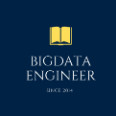Description
Apache Spark is a flexible and fast framework designed for managing huge volumes of data. The engine supports the use of multiple programming languages, including Python, Scala, Java, and R. Therefore, before starting to learn Apache Spark use, you might want to focus on one of these languages.
In this Apache Spark tutorial, we will be focusing on the eCommerce weblog report generation. For companies that are highly dependent on their web presence and popularity, it is crucial to determine the factors that might be related to a successful eCommerce strategy. As a result, some business-owners consider analyzing weblogs. During Apache Spark training, you will be introduced with a variety of reports that you can generate from these weblogs.
What is Apache Spark?
To learn Apache Spark, you need to be introduced to the basic principles of this engine. First of all, it is a framework for improving speed, simplicity of use, and streaming analytics spread by Apache. Apache Spark is an extremely efficient tool for performing data processing analysis.
What are weblogs?
A weblog can provide you with insightful information about how your visitors act on your website. By definition, weblog records the actions of users. They might be useful when aiming to determine which parts of your website attract the most attention. Logs can reveal how people found your website (for instance, search engines) and which keywords they used for searches.
What will you find in this course?
In this course for people that have chosen to learn Apache Spark, we will be focusing on a practical project to improve your skills. There will be some basics of how to use Spark, but you are expected to have a decent understanding of the way it works.
For our project, you will have to download several files: they are a must for this Spark tutorial. Then, we will start by exploring file-level details and the process of creating a free account in DataBricks.
The aim of the project in this course to learn Apache Spark is to review all of the possible reports that you can conduct from the weblogs. We will be retrieving critical information from the log files. For this purpose, we will use the DataBricks Notebook. As a brief reminder: DataBricks allows you to write Spark queries instantly without having to focus on data problems. It is considered as one of the programs to help you manage and organize data.
We will learn how to use Spark to generate various types of reports. For instance, a session report provides information about the session activity, referring to the actions that a user with a unique IP performs during a specified period. The number of user sessions determines the amount of traffic that websites receive.
This Apache Spark training course will also focus on a pageview report, which determines how many pages were viewed during a specified time. Additionally, you will learn about a new visitor report, indicating the number of new users that have visited the website during a given time.
To learn Apache Spark better, you will be introduced with referring domains report, target domains report, top IP addresses report, search query report, and more!
What Will You Learn?
- How to install DataBricks
- Different types of weblog reports
- How to generate session, page views, new visitor, referring domains, and other weblog reports
Requirements
- Basics of Apache Spark and Scala
- Basics of SQL
Curriculum
Course consist of total 1h 9min of content, in total.
Section 1: Introduction
About the Instructor
I am Solution Architect with 12+ year’s of experience in Banking, Telecommunication and Financial Services industry across a diverse range of roles in Credit Card, Payments, Data Warehouse and Data Center programmes
My role as Bigdata and Cloud Architect to work as part of Bigdata team to provide Software Solution.
Responsibilities include,
- Support all Hadoop related issues
- Benchmark existing systems, Analyse existing system challenges/bottlenecks and Propose right solutions to eliminate them based on various Big Data technologies
- Analyse and Define pros and cons of various technologies and platforms
- Define use cases, solutions and recommendations
- Define Big Data strategy
- Perform detailed analysis of business problems and technical environments


